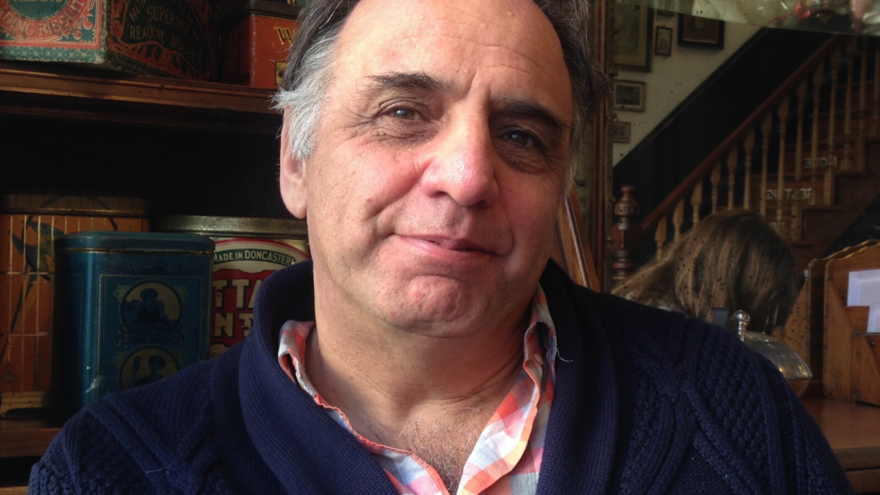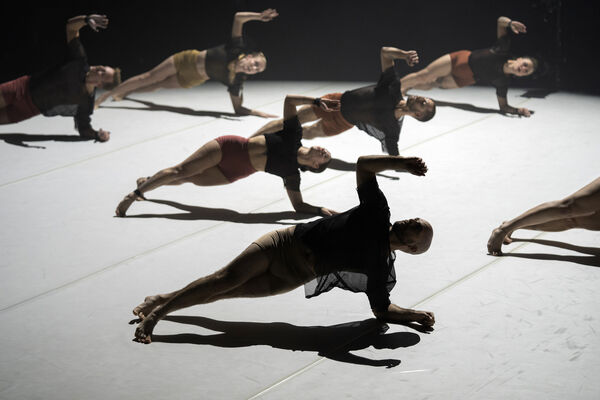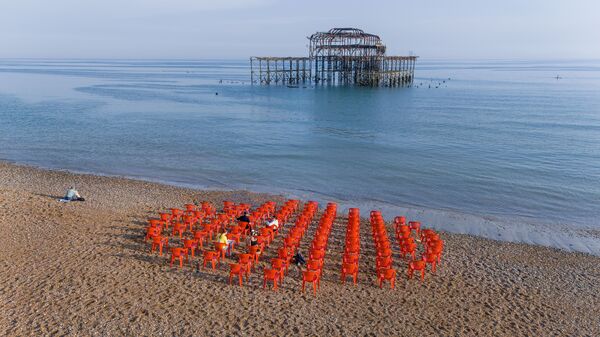
Interview with Director of caravan Gavin Stride
The caravan showcase has been run by Farnham Maltings within Brighton Festival since 2008 and introduces a curated group of England’s brightest performance artists and companies to festival organisers and programmers from around the world; with the ambition of developing new partnerships, collaborations and ways of working.
Caravan was due to take place in this year’s Festival on 11 and 12 May but since the cancellation, caravan’s Director, Gavin Stride and the team at Farnham Maltings have worked to bring the event online. We spoke to Gavin about how they adapted quickly to the changing times.
You must have been devastated that caravan had to be cancelled as part of the Festival. How have you adapted to continue with caravan for delegates?
Our initial response was ‘damn’ because it’s taken a lot of planning and a lot of work. And the artists see caravan as their chance to present to the world. But when I discussed it with the team they said ‘we can still make this happen’.
I should emphasise that whilst this is about adapting into a digital showcase, I think it’s been clear we don’t just want to dump stuff online and go ‘there you go there’s the digital version of that’. It’s still by invitation and it’s still about building relationships. The team has put loads of energy into trying to find the best way to keep that spirit of caravan which is about generosity and getting people to talk to each other. I’m really encouraged by the way they’ve responded to that challenge. I hope it feels human and I hope it feels like people are meeting people, not just sitting in front of a screen and consuming.
How will the caravan digital showcase work?
It’s a mixture of platforms; some of it is being done on Zoom and Slack and it will give delegates a chance to arrange one to one meetings with an artist or a company they’re interested in talking to. We’ve created a website with all of the digital content that each of the artists has produced for delegates to look at in their own time and from that, hopefully a relationship will evolve.
We’re also hosting conversations that might emerge, it would be impossible to host an event now without discussing the current times we find ourselves in. We’ve got keynote speakers and artists will be presenting their future ideas and short pitches so that they can show the work they’re interested in making.
How many delegates have registered this year and where are they located?
We’re fully booked with just under 100 delegates and we deliberately kept it that way. We wanted to create an event where people feel like it matters that they are there and are part of the dialogue. The idea is to make a community over the two days where people can get to know each other.
Delegates are joining from every part of the world: South America, USA, South East Asia. This year we’ve had more European contacts register than we’ve had in the past, there seems to be more of an appetite for forging relationships with English-based artists.
You spoke at the Festival launch back in February and mentioned that you’d received a huge response from artists to take part this year. Why do you think that is?
Why are we getting more? I think people are becoming more savvy and actually we need it to create a range of different partnerships and to sustain ourselves and that’s even more true now. We are always curious to make sure that we get a mixture of artists that we think are the new talent, I think that’s what programmers and producers are interested in and look to us for the next generation of up and coming makers. The artists who might not have been selected for the British Council’s Edinburgh Festival showcase and we’re comfortable with that. But we’re also getting artists that are already known.
Paradoxically during this time of shut down, we’ve become very aware with how the world is inter-connected with each other. I hope we feel much more connected to a wider world. I think people are seeing and understanding the benefit of understanding their place in the world. Not just in a local sense.
Do you think that some positive will come out of this?
I think good can come out of this and it relies on us as a community, it’s not going to happen organically.
We have got to be determined to take this moment. Nobody else knows what’s going on so it’s in our hands to be able to shape and articulate what we want the new order to look like.
I think what’s interesting is even if we go back to a live experience and I hope we do, there are human interactions that are particular and special and are really useful to building trust and being able to read each other. In the future we will always augment that with a digital dimension to bring people in who can’t physically be there.
If I have a position of influence, it is to make sure any power that we do accrue is passed on to artists and audiences and communities. If I can open doors then great, let's encourage other people through those doors.
Why is it important to give young artists a platform like caravan to get their work recognised?
I think young artists come un-trapped by the history of expectations of what art should or shouldn’t be. There is a whole cohort of young artists coming through who are playing with form, content, style and it’s delightful to see.
But I’m not sure I can argue for a young artist over anyone. What I hope is that we move away from these hierarchies and see that we’re all capable of expressing who we are in all sorts of ways. I hope we can become curious in people who know how to make extraordinary art and connect with their audiences. It’s not about experience it’s about the originality and the quality of the idea.
How do you think the arts will cope with the aftermath of the pandemic?
I think this situation is ours for the making. I’m sure that artists at their best will find original and inspiring ways of responding. Making art and making sense of the world is a key quality of being human and people will find ways of doing that. It may not look like the old order and that’s OK.
If it means we end up sitting around a fire with a storyteller because that’s possible and exciting, then so be it. It’s not for me to say how artists will find that solution but I promise you they will.
Interview by Liberty-Rose Gatcombe, University of Brighton, Multi-media Broadcast Journalism student placement: @liberty3rose
Find out more about caravan here
Read an interview with caravan artist Andy Field here



